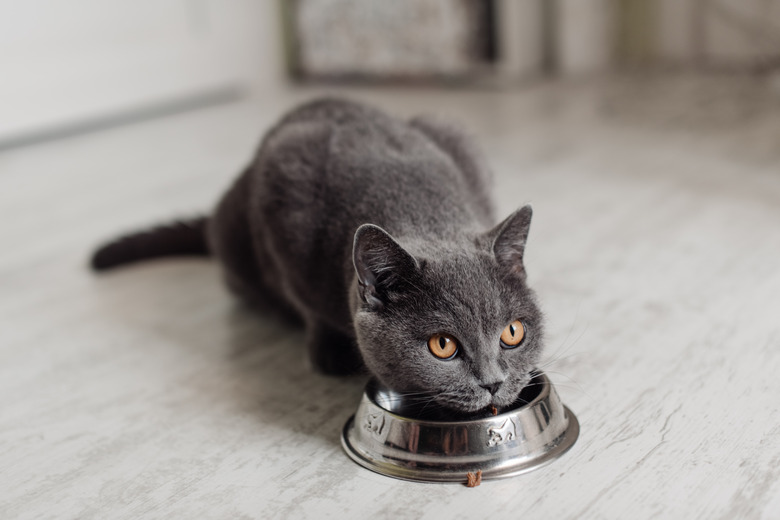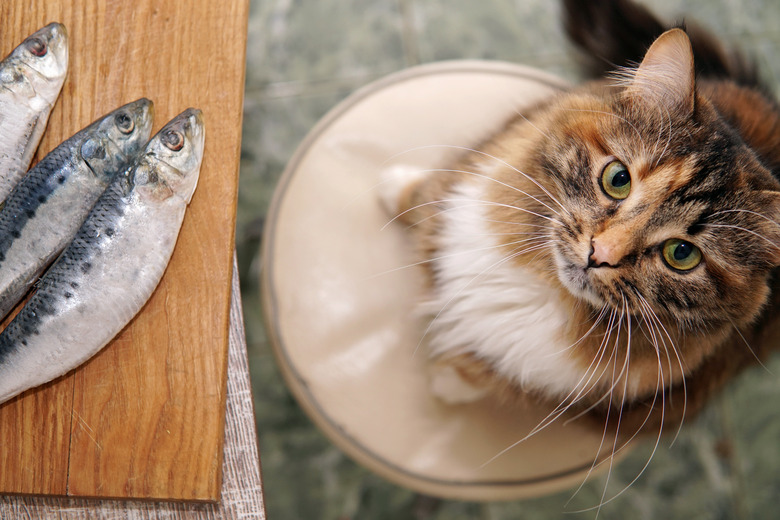Can Cats Eat Sardines? Here's How To Feed Cats Sardines
Cats are intensely attracted to the smell of sardines. Sardines are small, oily fish that can be used to feed cats an occasional treat. Not only will your cat love the yummy fish but some nutrients in sardines may have health benefits, such as vitamin B12 and vitamin D, and adding omega-3 fatty acids found in sardines can improve skin and coat health and may be beneficial for conditions like kidney insufficiency and heart disease. However, cat owners should know that sardines aren't always a healthy choice and must weigh the benefits of sardines against the risks for their kittens and adult cats.
Cats and canned sardine nutrition
Canned sardines are packed with cat-belly-filling calories and delicious fat. They also serve up minerals that include calcium, potassium, zinc, iron, magnesium, potassium, and phosphorus. The fishy treats are also a significant source of B vitamins and vitamin A. However, sardines are often packed in oil that can cause problems for cats, like gastrointestinal upset. Avoid buying sardines packed in olive oil with herbs and spices or even in tomato sauce, with the intention of giving it to your cat.
Although there is plenty of sodium in each ounce of canned sardines, cats don't usually have ill effects from excess salt content the same way that humans do. Though they do not generally suffer from hypertension-related cardiac disease, kidney disease, or gastrointestinal damage based on the amount of salt in their diet, they can still experience some negative side effects from a high-sodium diet, so treats like sardines with high salt content should be limited. In large quantities, salt can even be toxic to cats.
Can cats eat sardines?
Fish are easily digested, and the smell can tempt a cat with a reluctant appetite to help prevent unwanted weight loss or to add variety to your pet's diet. However, eating fish isn't a complete diet for cats and should only be used to supplement a high-quality diet of canned and dry kibble. Limit feeding sardines or other fish to no more than two or three times per week and no more than 10% of the toral diet, and take care to remove all bones before sharing sardines with your cat.
Raw sardines contain high levels of thiaminase. Thiaminase is an enzyme that breaks up the molecules of the B vitamin, thiamine, and renders it useless. As the vitamin is necessary to energy metabolism, your cat could suffer from chronic fatigue, weight loss, cardiovascular diseases, and nervous disorders. Canned sardines have been cooked, which destroys thiaminase. However, they still do not contain enough thiamine for a balanced diet.
Don't add spices or oils, as these can upset your cat's digestive system, and the taste of the fish is what these carnivores crave. If feeding canned sardines as a treat, choose options that are not packed in heavy oil or have sauces, herbs, or spices added. (Don't feed right out of the can because that would be too many sardines and also the cat may cut a lip or tongue on the can's sharp edges). Keep in mind that thiamine is not added to canned sardines intended for humans, so do not overfeed the fishy delight to your feline. Wet cat food containing sardines is the best way to add the fish to your cat's diet.
Cook fresh fish and remove bones
If you prefer buying fresh sardines for your cat instead of a can of sardines, wrap the fish in a layer of parchment paper. Then, fold the parchment-paper-wrapped fish into an aluminum foil packet to hold in moisture.
Limit serving any type of fish to just two or three times per week and be sure to cook the fish and remove all bones. Remember that thiaminase, which can lead to thiamine deficiencies and cause disease, can be found in raw fish. Feeding raw fish to your cat is not recommended due to the potential for bacterial contamination, parasitism, and nutritional deficiencies. Cats fed raw fish also have insufficient vitamin E and may have calcium/phosphorus imbalances. Thiaminase is destroyed by cooking.
A good way to add sardines to your cat's diet is to find a balanced wet food containing them, which can be fed as part of the daily diet or offered regularly as a treat.
The bottom line
Remember that cats should not be fed a fish-only diet, unless it is a canned cat food diet made specifically for cats. It is important to achieve a well-balanced diet of canned and dry food that is specially formulated for cats to preserve a cat's health and immune system. Commercial cat food diets that are fish-based have nutrients added. As an occasional treat, canned and cooked sardines are fine to give to cats.


